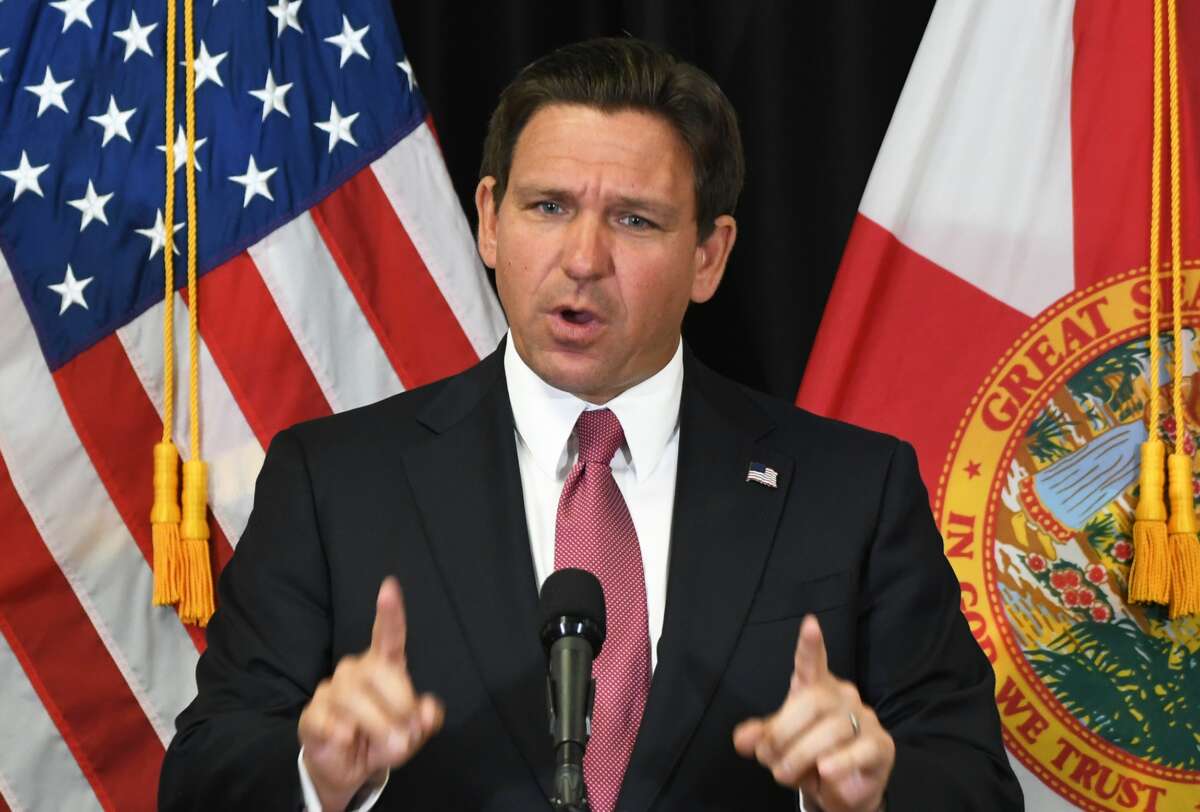Florida Republican Gov. Ron DeSantis signed legislation on Wednesday that will weaken climate regulations and expand fossil fuel use in the state, even as Floridians experience the increasingly devastating effects of global warming.
Although Florida Republicans passed several regulations in 2008 to mitigate the effects of the climate crisis, they have since dismantled those regulations piece by piece.
The legislation signed by DeSantis this week expands the use of natural gas, limits regulations on gas-based appliances, and reduces regulations on gas pipelines in the state. It also eliminates requirements for government agencies to hold meetings in hotels across the state to discuss the effects of the climate crisis, and ends requirements that those agencies consider climate-friendly products when making necessary purchases, like fuel-efficient vehicles.
The legislation goes into effect on July 1. While it will not affect the growth of solar power in Florida, it does limit other renewable energy sources in the state, including the “construction, operation, or expansion of certain wind energy facilities & wind turbines.”
The new law was widely condemned by climate advocates.
“This purposeful act of cognitive dissonance is proof that the governor and state Legislature are not acting in the best interests of Floridians, but rather to protect profits for the fossil fuel industry,” Yoca Arditi-Rocha, executive director of the nonprofit CLEO Institute, told NBC News.
Indeed, during DeSantis’s short-lived presidential campaign this past year, he was one of the top recipients of oil and gas money on a list that includes both elected officials and presidential candidates.
In a post on X shortly after he signed the legislation, DeSantis claimed he was“restoring sanity” and “rejecting the agenda of the radical green zealots.” The move comes as Florida is increasingly seeing the effects of the climate crisis firsthand, including deadly and higher-intensity hurricanes, extreme heat that is breaking global records, and worsening toxic algae blooms.
If left unaddressed, the effects of the climate crisis in the Sunshine State are only going to get worse. Sea levels are predicted to rise between 1-4 feet in the next century. Flooding and hurricanes will likely become even more destructive, with higher windspeeds resulting in greater casualties and property damage. Meanwhile, higher temperatures will reduce the yields of a number of important crops for the state and take a toll on people’s health, particularly vulnerable populations like children and the elderly.
Media that fights fascism
Truthout is funded almost entirely by readers — that’s why we can speak truth to power and cut against the mainstream narrative. But independent journalists at Truthout face mounting political repression under Trump.
We rely on your support to survive McCarthyist censorship. Please make a tax-deductible one-time or monthly donation.
